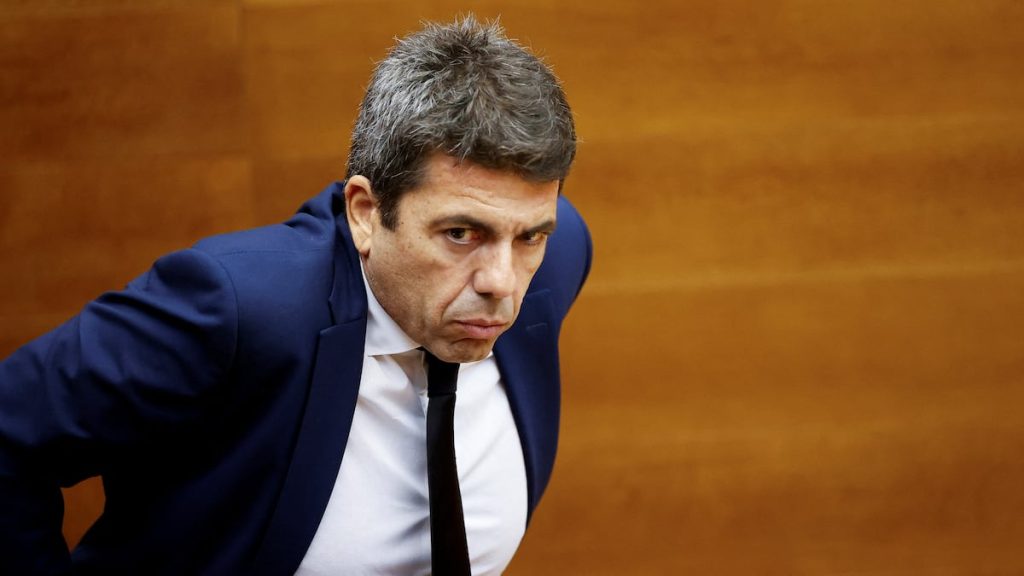In the midst of a tragic flood in Valencia, it is clear that Carlos Mazón, the President of the Generalitat, was nowhere to be found. While thousands were fighting for their lives, Mazón was reportedly secluded in a restaurant, out of reach and seemingly indifferent to the crisis at hand. His absence was glaring, as he failed to answer calls, rushed to his office, or take any action to help. When he finally addressed the public, attempting to explain the events of the flood in detail, it became evident that Mazón was not just an unreliable witness, but a deceitful one, fabricating a parallel reality to shield himself from criticism.
Dressed in a dark blue suit, white shirt, and black tie, Mazón read from a thick stack of papers at a deliberate pace, displaying a lack of urgency or empathy. He only stumbled over his words when discussing the personal cost of the news coverage surrounding his extended stay in a restaurant with a journalist. His speech seemed mechanical, lacking genuine emotion or connection to the human suffering caused by the flood. Criticisms from opposition members, particularly the heartfelt appeals from Compromís spokesperson Joan Baldoví, appeared to make Mazón uncomfortable, revealing his scripted and detached demeanor.
Following a contentious exchange with Baldoví, Mazón faced relatively mild criticism from other party representatives. Vox raised some points of concern, but the session quickly transitioned into a more relaxed atmosphere. Even the Socialist Party spokesperson, José Muñoz, engaged in friendly banter with Mazón. The day ended with little resolution or meaningful discussion, as protesters outside the Cortes Valencianas dispersed and the political drama dissipated. The main question regarding Mazón’s actions on the day of the flood remained unanswered, leaving uncertainty regarding his priorities and responsibilities during the crisis.
The central issue revolved around Mazón’s whereabouts and actions during the flood. The Generalitat initially claimed he was in a restaurant with poor reception and was unaware of the unfolding tragedy, while Mazón later insisted he remained at the restaurant because his minister was already on site and in communication with the government delegate. However, both explanations raise significant concerns about Mazón’s leadership and decision-making in a crisis situation. Whether he was truly absent and uncaring or informed but inactive, the public scrutiny intensified over Mazón’s handling of the flood and his accountability as the President of the Generalitat.
As the political fallout continued, with conflicting narratives and unresolved questions lingering, the focus shifted to Mazón’s credibility and competence as a leader. Whether he was truly unaware of the crisis or chose not to intervene despite being informed, the public outcry and opposition scrutiny highlighted the need for transparency and accountability in times of crisis. Ultimately, Mazón’s response to the flood revealed deeper concerns about his leadership style and priorities, raising doubts about his ability to effectively govern and serve the people of Valencia.


